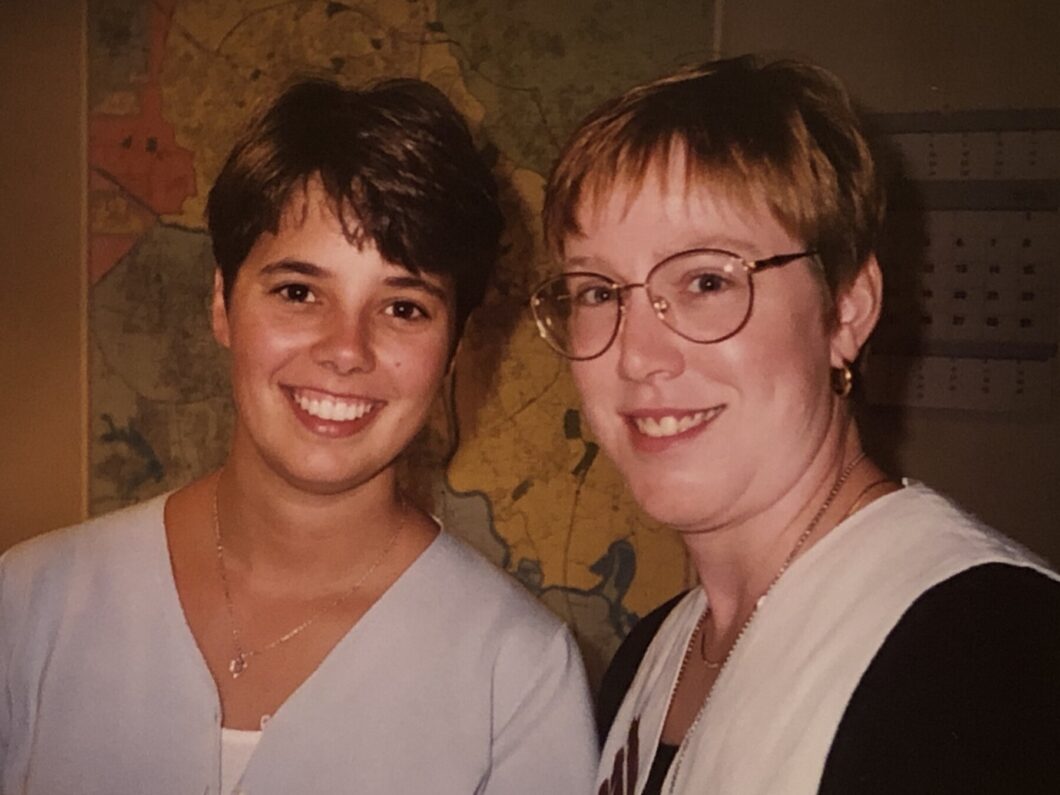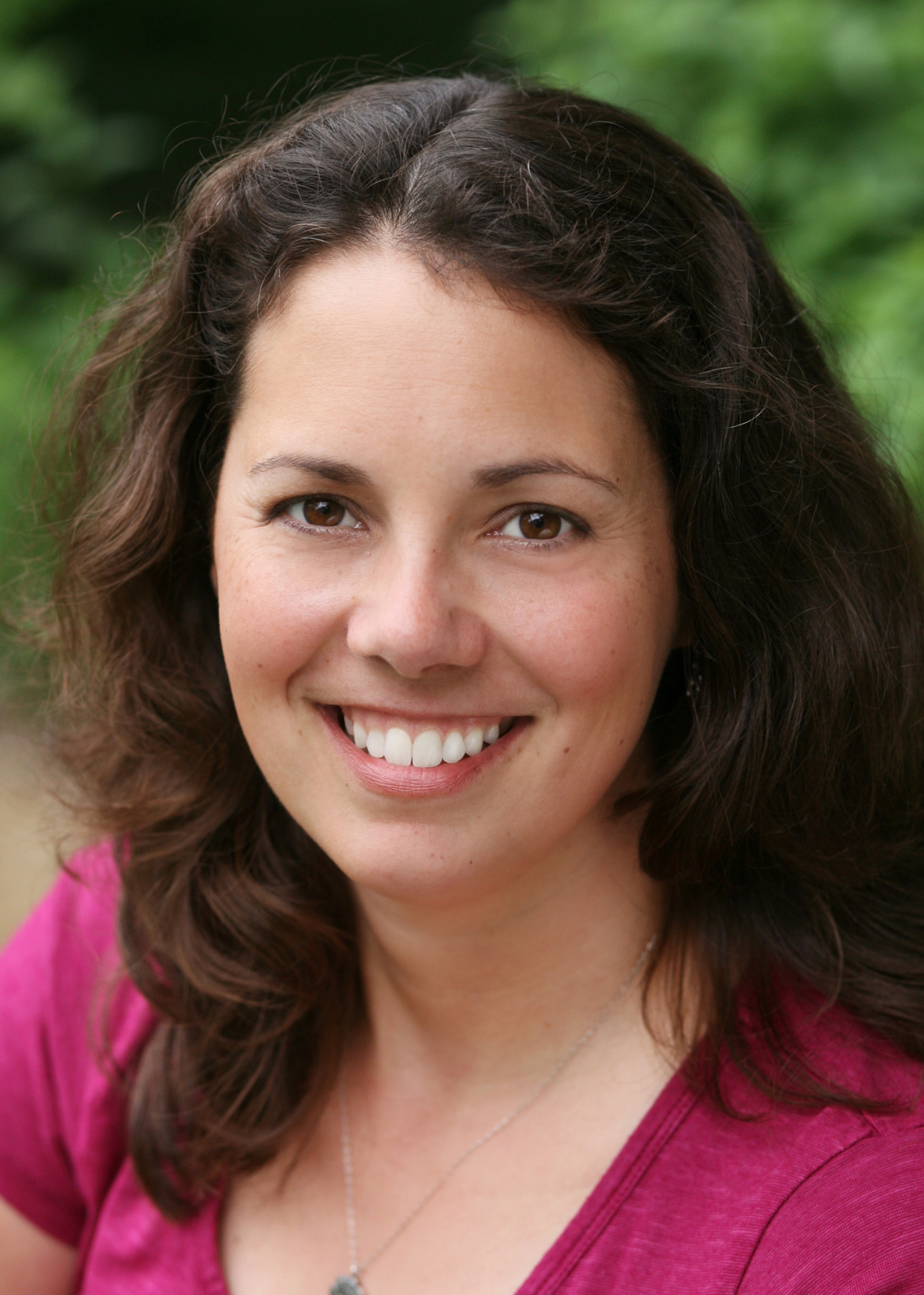
“Tell stories like you’re writing for Tony Fauci’s aunt.” That advice from my first mentor, A.J. Hostetler, has stuck with me for more than 20 years. And these days it comes to mind whenever I see Fauci, director of the National Institute of Allergy and Infectious Diseases, in the news talking about coronavirus.
“It’s my first law of science writing,” A.J. told me recently. Now director of communications for the Office of the Vice President of Research and Innovation at Virginia Commonwealth University, she’s a former science reporter at the Richmond Times-Dispatch in Richmond, Virginia. I was an intern at the paper in 1998, as part of the American Association for the Advancement of Science (AAAS) Mass Media Fellowship Program. As I pounded out stories in the T-D’s “science pod,” watching my stack of reporter’s notebooks pile up and reveling in my newfound identity as a journalist, A.J. taught me the essentials: How to structure a news story. How to interview a scientist. How to write clearly—as if writing for Tony Fauci’s aunt.
A.J. developed her almost-certainly unique version of the journalistic mandate to write clearly in the late 1980s, after hearing Fauci speak to a gathering of science writers. “He’d been on TV a lot as head of NIAID, talking about AIDS,” A.J. says. “And he’d gone home to visit his family, and was feeling kind of proud of himself for his media interviews. His aunt, though, told him she loved seeing him on TV, but she never understood what he was talking about. He realized he needed to talk about AIDS in a way his aunt would understand. And that’s when I realized that I, also, needed to write for Tony Fauci’s aunt.”
A.J. mentored dozens of interns at the Times-Dispatch, several a year for more than a decade. I spoke with her recently about what she learned about mentoring interns and what those experiences meant for her. (This interview has been edited for length and clarity.)
What were the most important skills you worked to help your mentees develop?
The skill that I tried most to instill in all the interns was to write simply. Some interns would struggle with starting their story, as might any seasoned writer, and I would suggest they write as if they’re telling their mother what they did that day. That usually helped. It’s also hard for someone from the world of science, like the AAAS interns, to stop using their field’s jargon. So, in addition to writing for Fauci’s aunt, I would tell them to “unpack the suitcase.” Finally, every writer has to learn that when you come up with an exquisite turn of phrase that doesn’t naturally fit into the story, you have to be ruthless and cut it from the piece. I also would have the interns do writing exercises where they had to cut from the bottom upwards of their news story; to tell the story in eight inches, when they’d originally told it in 20 inches.
I also always encouraged the mentees to rely on their curiosity—that they may not have interviewing skills, but they’d seen people interviewed on TV, and most of them had been reading the more significant science writing authors, so they had a sense of it. Then they just needed to go out and do it. Being a writer gives you a license to follow your curiosity. If you’re not curious, you shouldn’t be a science writer.
But part of that process of learning, by necessity, involves getting in your own way. At some point, every writer I know who’s learning the craft gets in their own way and loses sight of the goal of writing simply. They want to stretch their writing muscles and try to be something that they’re not naturally.
That’s just part of the learning curve, and I think it’s an important part because it forces the writer to reckon with a number of things: What is their voice? Are they trying to copy somebody else’s voice, and if so, why? What is it that’s tripping them up? Is it that they don’t have the right material? Is it that they’re afraid they don’t have the right quotes? Whatever the source of that [discomfort] is, it should make the writer stop and think about things. It’s something that invariably happens, and not just to interns.
Sometimes interns were nervous about cultivating sources. I think, like a lot of people, they were nervous about calling someone up and saying, “Can you tell me about your work?” And they think the rational thing for a scientist to do would be to say “No.” But people like to talk about their lives, and their work. The interns often needed a little prodding to feel comfortable doing that.
I also sought to build on and deepen their understanding of journalism ethics—what does it mean when someone lets you into their life, their work, and trusts you as the reporter to report what you see in a fair way?
Also, I wanted them to learn to deal with an editor—the dreaded red pen. I wanted interns to understand that the edits didn’t mean that the work was bad, or that they were a bad person. I remember an intern whose face just kind of fell when I came to them with an edit. I told them that the red meant there was something there for me to work with. One of the key skills for reporters is learning to be edited. That relationship between the writer and the editor is so important.

What I hoped to also instill, at the end of the internship, was a sense of the science-writing community—at the Richmond Times-Dispatch we had 30-some years of AAAS interns, sometimes two or three a year, and as they went off, either back to grad school or to something else, I wanted them to know that they had this built-in community of science writers, or people who had been science writers in a situation like themselves, who had also been trying to figure out the craft and what they might want to do with it.
Finally, there’s a lot of that mentoring role that goes beyond the words on the screen—so much of what interns do is about where their head is at. There’s a nurturing role in being a mentor. With these internships, these people were away from home, and sometimes things happen. One intern started in our newsroom the day before 9/11. Another who was a native Californian and had no experience with East Coast weather was here for a hurricane. I felt that I needed to pay attention to that part of their lives, as well as the science-writing part—they were our guests, and I took that seriously.
Are there any skills that you didn’t at first realize would have to be taught?
Quotes. What makes a good quote, how do you elicit a good quote, and what can you do in the process of the interview that creates that area of trust with your interview subject so that they open up to you?
The AAAS interns, having reached a certain point in their career as graduate students in science, knew how to read a scientific article, they knew how to write a paper. Most interns seemed to grasp the basic structure of a news story, the idea that a science article often turns the scientific paper on its head. But getting quotes from people isn’t something that most people do. Early on, as a mentor, I figured out that that was something that they needed more help with.
How did you do that?
I think it was mostly by example, in pointing out good quotes in stories in the paper, or in what I was working on myself, or in their stories, in the editing process. Also, that some of the best quotes come from the source as you’re wrapping up the interview, so you need to be prepared for that opportunity.
Are there any mistakes that mentors should avoid?
Not letting go of the bike when it’s time. At about the third month, that’s when the interns felt like they had their feet under them enough that they wanted to try riding the bike themselves.
How did you recognize that it was time?
Usually the intern would start to argue about an edit, or speak up and feel more confident about their writing. That’s when you have to say, you know, “Go to it.”
Are there any other minefields to watch out for, as a mentor?
Not recognizing that you might be pushing your own voice as a writer on a mentee, through your edits or through how you might encourage them to shape a story. I remember, with you, the moment when I recognized your writing voice, and it was very different from mine. I was like, “Oh!” I think later, I learned that you wanted to do magazine writing, and that seemed to me, like, “Oh, yes”—your voice at the time would be a good fit for that.
What has being a mentor for young science writers meant for you?
I always enjoyed my work with the science-writing interns because their being in the newsroom made me think more about my craft. They would ask, Why this? Why that? And with each intern, it was something different. It was good for me as a writer to be reminded on a fairly regular basis that I need to be thoughtful about my craft. What is a writer’s voice? Why does a lede work this way? How else could you write this story?
I’ve been honored to play a part in their journey. With the AAAS program of course, most of the graduate students were thinking that maybe the world of science was not for them, but they really loved telling stories about science. Playing a part in their journey of figuring out what they wanted to do was really wonderful. To see them succeed, to become leaders in the field, to become one of the people that AAAS brings in to talk about the program … I’m really proud of whatever role I may have played.

Siri Carpenter is co-founder and editor-in-chief of The Open Notebook. Follow her on Twitter @SiriCarpenter.


